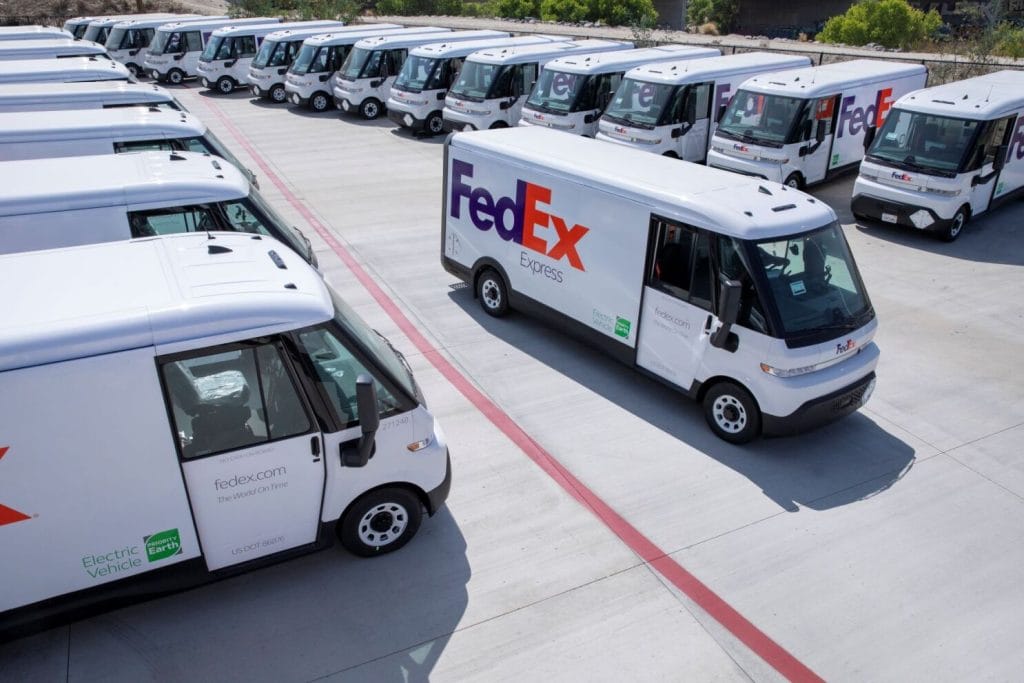FedEx Backs Harbinger with $160 Million to Scale US Electric Truck Fleet

• FedEx co-leads a 160 million dollar Series C and places an initial order for 53 electric trucks.
• Funding accelerates US-based manufacturing of purpose-built medium-duty EVs for logistics and RV markets.
• Investment reflects fleet demand for lower-cost electrification aligned with North American climate and transport goals.
A New Push for US-Built Electric Trucks
Los Angeles. Harbinger, a young but fast-growing American manufacturer of medium-duty electric and hybrid vehicles, has raised 160 million dollars in fresh capital and secured a purchase order from FedEx as the logistics sector confronts rising pressure to decarbonise. The Series C round brings total investment in the company to 358 million dollars and marks one of the largest private financings for a US-based commercial EV platform this year.
The round is co-led by FedEx, Capricorn’s Technology Impact Fund, and THOR Industries. It also includes a wide group of returning backers across mobility, venture capital, and corporate sustainability funds. FedEx’s participation comes with an order for 53 Class 5 and Class 6 trucks, to be delivered as chassis ready for final upfitting later this year.
FedEx Pushes for Scalable Medium-Duty Electrification
For FedEx, the investment is tied directly to fleet strategy. The company is reconfiguring its pickup and delivery network and requires larger, more efficient trucks with predictable operating profiles. Executives say the next phase of its electrification programme demands vehicles that can handle high-utilisation cycles without raising total cost of ownership.
Harbinger’s platform is designed specifically for medium-duty fleets rather than retrofitting existing combustion chassis. By designing the battery system, powertrain, software, and safety features in-house, the company aims to keep acquisition costs close to diesel while cutting maintenance and fuel costs over the vehicle’s life.
For FedEx, this fits into a 2040 target to electrify its entire pickup and delivery fleet. The company has long argued that reliability, serviceability, and unit economics are the barriers to scaling medium-duty electrification. Harbinger’s approach seeks to address all three.
Inside Harbinger’s Platform Strategy
Harbinger engineers a stripped chassis with modular battery configurations, safety systems that meet passenger-vehicle expectations, and independent front suspension suited for tight urban routes. The vehicles can be configured between roughly 140 and more than 200 miles of range and deliver up to 13,400 lb-ft of wheel torque. The design aims to give fleets flexibility without over-specifying batteries, a major cost driver.
Driver experience is another priority. The company emphasises smoother handling and lower fatigue for long shifts, which has become a growing concern for large fleet operators facing retention challenges.
Manufacturing is centred in the US, with leadership asserting that domestic production has helped the company avoid recent supply-chain volatility and tariff pressures. Building a high share of US-made components also positions Harbinger to benefit from federal and state incentives that favour local content and contribute to state decarbonisation plans.
THOR Industries Extends the Partnership
Beyond logistics, Harbinger’s technology is gaining traction in the recreational vehicle sector. THOR Industries, the world’s largest RV manufacturer and a co-leader of the funding round, is using the platform for electrified RVs, including the Entegra Coach Embark. The model pairs Harbinger’s chassis with a gasoline range extender that recharges the battery system to deliver up to 450 miles of driving. The concept recently received industry recognition for advancing lower-emission RV design.
For THOR, deeper collaboration with Harbinger supports a long-term plan to shift the RV market toward lower-carbon mobility. The electrified RV category remains nascent, but manufacturers see regulatory, consumer, and brand-differentiation drivers pushing toward cleaner designs in the decade ahead.
RELATED ARTICLE: FedEx Launches FedEx Sustainability Insights for Customer Emissions Tracking
What Executives and Investors Should Watch
The medium-duty segment has lagged behind passenger EVs and heavy-duty trucking, largely because of complex duty cycles and cost barriers. Investors and sustainability leaders view Harbinger’s latest raise as evidence that this segment is entering a scale-up phase, encouraged by rising pressure on commercial fleets to comply with state mandates and corporate climate commitments.
If Harbinger can deliver reliable trucks at near-parity cost to combustion models, it could fill a major gap for e-commerce, parcel delivery, and service fleets—sectors that collectively move vast volumes of goods and sit at the centre of corporate Scope 3 discussions.
The Broader Implication for US Transportation Policy
Harbinger’s expansion aligns with federal priorities to localise EV supply chains, accelerate commercial fleet decarbonisation, and reduce dependence on imported components. States with aggressive fleet electrification rules, including California and several northeastern markets, are tightening compliance windows. Medium-duty vehicles are now a central focus of those rules.
For global sustainability leaders, the development offers a view into how mid-market manufacturers are shaping the next wave of transport electrification. If successful, this model could influence policy decisions, procurement strategies, and infrastructure planning across North America and other regions seeking to decarbonise logistics without compromising operational resilience.
Follow ESG News on LinkedIn












